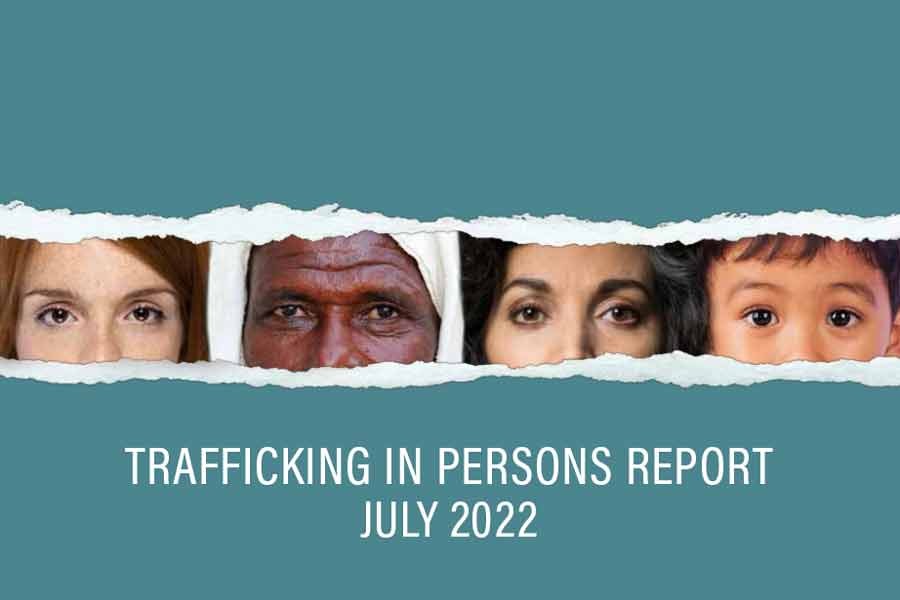The Trafficking in Persons (TIP) Report 2022 released by the US State Department recently has included the Myanmar's displaced Rohingya as victims of the payment of the highest migration cost in the 'region'. The report has presumably referred to the Rohingya as Bangladeshis. In the Report's words "Rohingyas and poor migration seekers", the case for 'Bangladeshis' remains implicit. These words mixing Rohingya people with Bangladeshis could trigger confusions. In reality, the Rohingya had never been Bangladesh citizens. They are Myanmar nationals, displaced by persecutions orchestrated by that country's army. At present, 1.0 million Rohingya refugees are sheltered in temporary camps in the southern tip of Bangladesh, with many staying with their host communities in greater Cox's Bazar. Of the total Rohingya, 750,000 entered Bangladesh in 2017 to escape 'ethnic cleansing'. Negotiations have long been on to send the Rohingya Muslims back to Myanmar.
In fact, Bangladesh doesn't have any acute form of illegal migrant problem. Frenetic efforts are, however, seen among a section of rural job-seeking youths to land jobs abroad. Many are defrauded by human traffickers in the process, becoming debt-bondage victims. Moreover, the migration cost of legal Bangladeshi migrants is still the highest in the region. Not long ago, makeshift boats, carrying Bangladeshis, floating aimlessly near Greek coasts were not rare spectacles. One such incident involving 300 fortune-seeking Bangladeshis has just been reported. Presently in Asia, the largest segments of refugees eying safer lands elsewhere are the Rohingya. It's these people who turn to the trafficking syndicates to help them reach distant shores. The TIP report offers a scathing account on how the Rohingya women along with children fall victim to traps laid by traffickers. It also points out that Bangladesh remains at 'Tier 2' this year as it has made progresses in combating human (Rohingya) trafficking by increasing investigations, prosecutions, and convictions against human traffickers.
The TIP report says human traffickers transport Rohingya girls within Bangladesh who end up in Chottogram and Dhaka, and regionally in India, Malaysia, and Nepal. Most of them are coerced into sex business by the syndicates of sex traffickers. They are also tempted with false promises of jobs or marriage. A lot of traffickers run their 'trade' on the internet. The report comes up with allegations from international organisations saying, Bangladesh officials are involved in facilitating the trafficking of Rohingya people, by providing traffickers access to camps in exchange of bribes from traffickers. Moreover, Rohingya girls and boys are picked from camps and forced into the jobs of domestic workers, shop help, fishers in deep-sea trawlers etc.
According to an international organisation, Bangladesh is the world's sixth-largest migrant labour source. It is viewed as the 8th largest country to receive remittances from the Gulf countries, Malaysia, Brunei and the Maldives. For cheap sources of labour, traffickers eye Bangladeshi men, women and teenagers who migrate willingly, but return disillusioned and devastated. Many unlawful migrants have to remain detained in camps for indefinite periods. This happens in case of 'mainstream migration' like those resorted to by the West Asians and Africans. Thanks to their strong physique, many illegal African migrants have been legalised through phases of 'integration'. It's also true many died at mid-sea on way to Europe. They included a handful of Bangladeshis falling victim to traps set by trafficking gangs based in Libya. Bangladesh could earn huge volumes of remittances. Phony manpower agents and traffickers stood in the way. Now the rootless Rohingya are out to botch up the efforts, unwittingly though.


